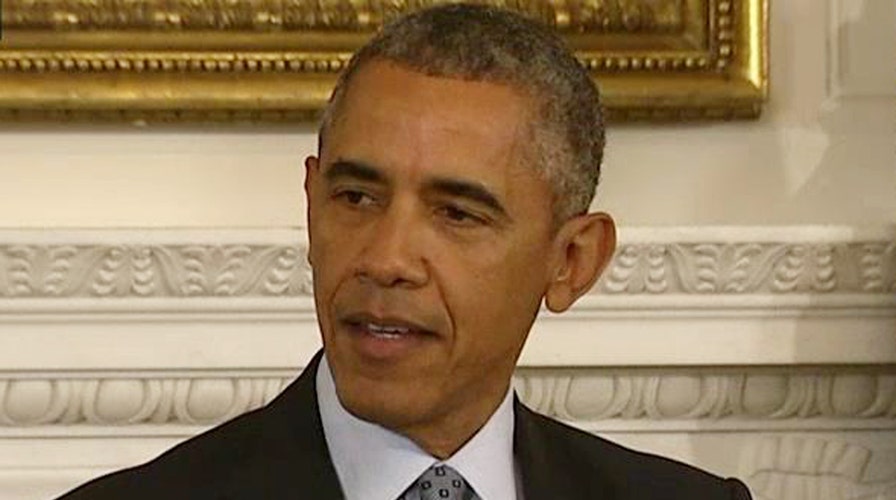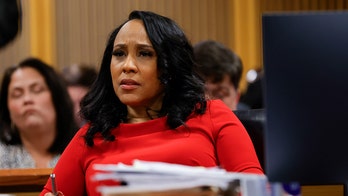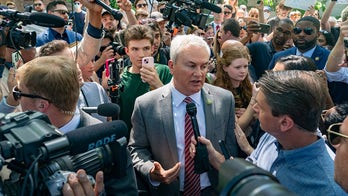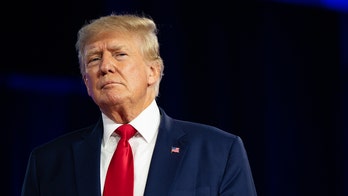Obama: World not fooled by Putin's strategy in Syria
President rejects Russia's military campaign, says 'weakness' forced Russian president to intervene
President Obama, addressing Russian intervention in Syria at a White House press conference, said Tuesday Iran and Syria President Bashar Assad represented Russia's entire coalition "and the rest of the world makes up ours."
He also said Washington and Russian leaders are currently having critical "conversations about deconfliction" so that tensions in Syria won't end up with "firefights" in the air between the two sides. He warned against suggestions that the U.S. immediately intervene militarily to protect the Syrian rebels who have come under attack by Russian airstrikes in recent days.
"This is not a contest between the U.S. and Russia," he said. "We're not going to make Syria a proxy war between Russia and the United States. Our battle is with ISIL."
Nevertheless, reports Friday indicated that senior U.S. military leaders and defense officials are debating whether military force should be used to protect Washington-backed Syrian rebels.
Right now, the military is not authorized to retaliate on the rebels' behalf.
“This is a hugely difficult and complex problem and I would have hoped we would have learned that from Afghanistan and Iraq, where we have devoted enormous time and effort and resources with the very best people,” he said, addressing the impulse to rush to a military solution.
This doesn’t change the U.S. and coalition policy that the regime of President Bashar Assad must go, he told reporters.
Obama would not say when asked by a reporter whether he felt Putin had been dishonest in not laying out his intentions in conversations with the White House before the strikes.
"Mr. Putin had to go into Syria not out of strength but out of weakness" to prop up Assad, Obama said, calling it a lonely place on the world stage. "Iran and Assad make up Mr. Putin's coalition at the moment. The rest of the world makes up ours. We are not fooled by the current strategy."
He said Putin appeared to share the U.S. coalition’s urgency to defeat ISIL but what is clear, he said, is Putin “doesn’t distinguish between ISIL and a moderate Syrian opposition that want to make Assad go.”
He said the Russian airstrikes will ultimately prove counterproductive, as it will draw the animosity of the Syrian people and the wider Sunni Islamic world.
"Mr. Putin's action's have only been successful in so far as they have bolstered his poll ratings inside of Russia," said Obama. "But this is not a smart strategic move on Russia's part."
The Pentagon on Thursday had its first conversation with Russian officials in an effort to avoid any unintended U.S.-Russian confrontations as the airstrikes continue in the skies over Syria.
U.S. officials made it clear earlier this year that rebels trained by the U.S. would receive air support in the event they are attacked by either ISIS or Syrian government troops, but the Russian airstrikes have added an unexpected complication. Currently, only about 80 U.S.-trained Syrian rebels are back in Syria fighting with their units.
In other remarks, which ranged from Friday's economic numbers to the school shooting in Oregon on Thursday, Obama said he would not sign another continuing resolution after the latest temporary measure to avoid a federal government shutdown was passed by Congress this week.That continuing resolution, which keeps the government running based on last fiscal year's budget, will expire in December. Until then, Congress must work on passing a real FY 2016 budget.
"It only sets up another manufactured crisis two weeks before Christmas," Obama said of the latest CR. "This is not how the United States should be operating. We can't keep kicking the can down the road. American families deserve better."
He also addressed the gun control issue in the wake of Thursday's shooting.
“Our inaction is a political decision that we are making,” Obama said "Every couple of months we have a mass shooting. This will not change until the politics change."
He urged elected officials to stop rhetorical games and to pass reasonable reforms. And if they don't, he said, voters should “vote against” members of Congress who don’t support efforts to control gun violence and to let them know “precisely why” they cast such votes.
He also took aim at the nation's largest gun rights lobby, the National Rifle Association.
“The NRA is very effective,” he said, adding it knows how to “stir up fear” and raise money.





